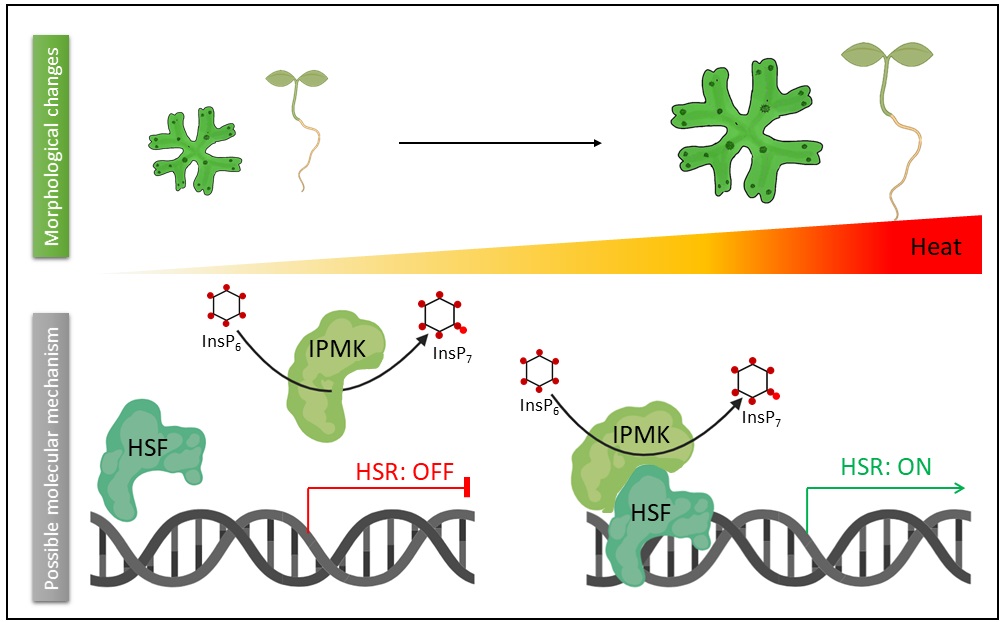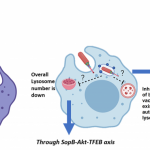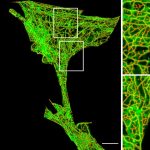
Plants cannot move to escape challenges posed by their constantly changing environment, such as extreme heat, drought, or nutrient deficiencies. Instead, they depend on complex internal signalling networks to perceive environmental signals and respond appropriately. One of the conserved signalling pathways that land plants employ is based on myo-inositol or inositol-derived molecules. Emerging studies have highlighted that inositol pyrophosphates (PP-InsPs) are critical for controlling plant growth, immunity, and nutrient sensing.
In a new study published in PLOS Genetics, researchers led by Debabrata Laha, Assistant Professor in the Department of Biochemistry have identified a conserved role of 4/6-InsP7, an inositol pyrophosphate with yet unknown enantiomeric identity, in regulating heat stress acclimation. In collaboration with Henning J Jessen’s research group at the University of Freiburg, Germany, the team found that 4/6-InsP7 is ubiquitous across land plants, from ancient nonvascular liverworts to modern flowering plants such as Arabidopsis thaliana.
They also demonstrate that enzymes in Arabidopsis called inositol polyphosphate multikinases – AtIPK2α and AtIPK2β – act redundantly to produce 4/6-InsP7 in plants. Genetic disruption of these kinases leads to a marked reduction in 4/6-InsP7 levels. PP-InsP-deficient Arabidopsis plants exhibit compromised heat stress acclimation, establishing a functional role for 4/6-InsP7 in heat stress tolerance.
Parallel investigation using the liverwort Marchantia polymorpha revealed that IPK2 function in 4/6-InsP7 synthesis and heat stress response is conserved, indicating that this signalling module possibly emerged during land plant evolution.
The team also uncovered that IPK2 physically interacts with heat shock factors (HSFs) – key proteins that drive the expression of heat stress-induced genes. By modulating HSF activity, IPK2 helps switch on the protective genes when the temperature rises, allowing the plant to survive and recover from heat stress.
The steady rise of global temperature, with frequent and intense heat waves, affects crop yield worldwide. Understanding natural survival strategies of plants, especially ancient, conserved ones like the IPK2-4/6-InsP7 pathway, opens up new possibilities for generating new crop varieties with improved heat stress tolerance. This research paves the way for a promising step towards sustainable agriculture in a warming world.






